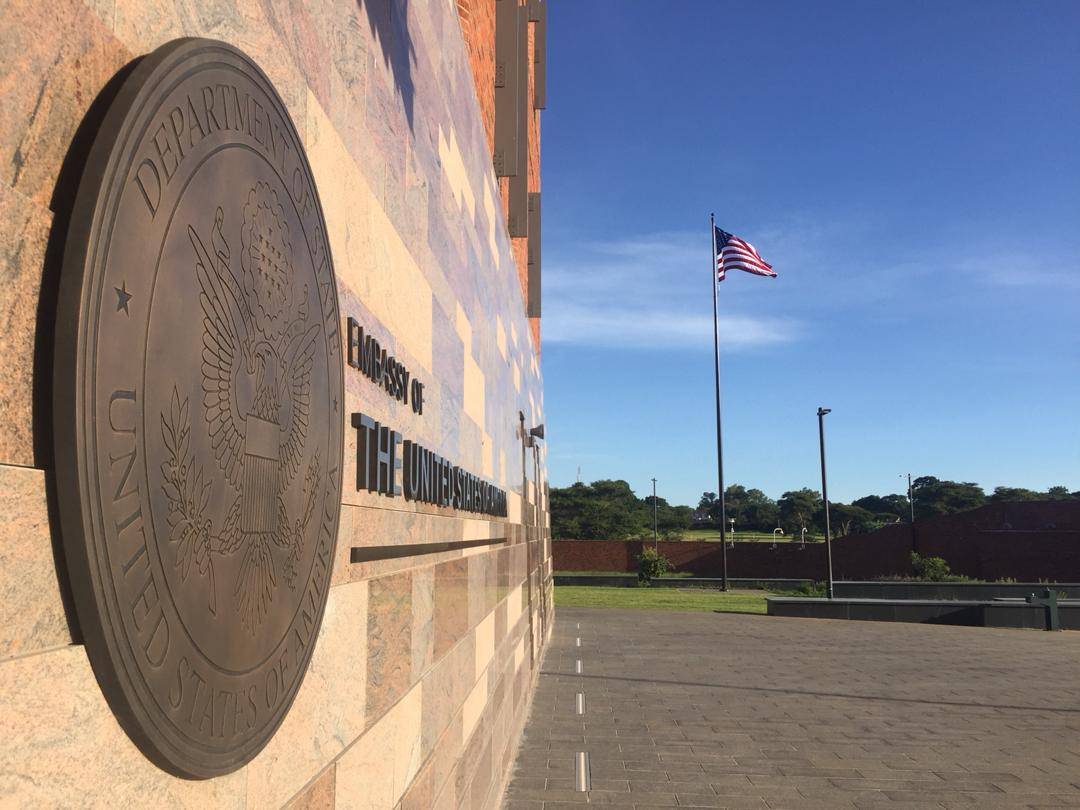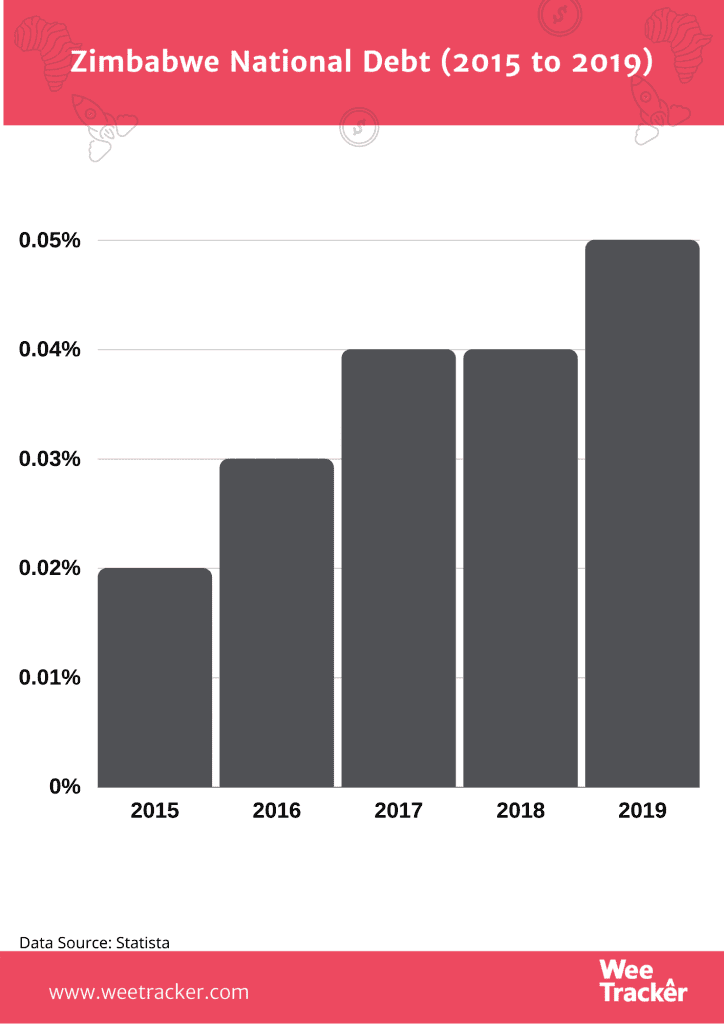The Spat Between The U.S & Zimbabwe Found Its Way Into A Covid-19 Grant

For the most part of the last two decades, the United States and Zimbabwe have not had a cordial relationship. Relations between Washington D.C and Harare have, mostly, been tarnished by a series of diplomatic clashes. As of now, the squabble is now more serious than ever.
George Floyd
The recent string of feuds surfaced as a result of Zimbabwe’s vocal involvement in the killing of the African-American, George Floyd, by Minneapolis police officers. A senior U.S official accused the Southern African country of fomenting unrest across America in the wake of the May 25th incident, which has dulled Africa’s friendship with America.
As protests across the U.S and controversy across the world made waves with the #BlackLivesMatter caption, the Zimbabwean government, last week, summoned the U.S ambassador, Brian Nichols, to discuss the comments made by Trump’s national security advisor, Robert O’Brien—who described Zimbabwe as a “foreign adversary”.
The current Emmerson Mnangagwa administration’s foreign affairs minister, Sibusiso Moyo, said that: “O’Brien’s comments were false and deeply damaging to relationship that has been complicated due to years of prescriptive diplomacy and punitive economic sanctions”.
Indeed, O’Brien, in an ABC interview, referred to not just Zimbabwe, but also China as opponents who use social media to create unrest and cause discord. The security adviser made these comments without citing any evidence.
While Nick Mangwana, a Zimbabwean spokesman, has said that the country does not consider itself an adversary to America, Mangwana tweeted on Sunday that Zimbabwe prefers having friends and allies to having unhelpful adversity with any nation, including the U.S.
In the past, Zimbabwe made threats to remove U.S ambassadors. but the current government proves different by not doing so. Removing an ambassador would be a major diplomatic step, Nathan Hayes, an analyst with the United Kingdom-based Economist Intelligence Unit, told IPS.
“If the Zimbabwean government were to remove him (ambassador Nichols), the U.S would likely react by suspending, temporarily at least, Zimbabwean diplomats in the U.S or reduce its diplomatic presence in Zimbabwean until the government made some meaningful progress on political and economic reforms”.
Past Rifes
The United States has had a complicated relationship with Zimbabwe for long, even when Robert Mugabe was still president of the land-locked country. Once, in 2008, Mugabe thundered on a American official using strong words similar to those he had employed in the past.
“As tall as he is, if he continues to do that I will kick him out of the country,” he said, with an anger aimed at the then United States ambassador, James McGee, after the diplomat questioned the results of Zimbabwe’s 2008 general elections.
The tiff appears to have began in 2002 when Washington imposed sanctions on Robert Mugabe and members of his inner circles over rights abuses. In March 2020, the sanctions were reestablished, as President Mnangagwa was pointed to for not implementing reforms and called out for violent opposition-focused crackdowns since he assumed office in 2017.
As a result of these sanctions, Zimbabwe’s current leader is one of the 80 people in the country who the United States is preventing from owning American bank accounts or travelling to the country.
Sibusiso Moyo said: “Zimbabwe has taken note of the measures deployed by the U.S authorities to deal with the challenges currently confronting them. At the same time, we recall the harsh U.S criticism and condemnation of our own response to multiple instances of illegal, violent civil unrest”.
Affected Aid
A new twist in the U.S-Zimbabwe wrangle is that America has asked the World Bank to impose stringent controls on a grant of USD 7 Mn which the Washington-based lender extended to the Southern African nation to assist its combat against the spread of Covid-19.
This is particularly surprising because USAID stats show that the United States has provided more than USD 3.2 Bn in development aid to Zimbabwe since its independence in 1980.
Last year, the U.S government announced a USD 45 Mn funding to help respond to Zimbabwe’s critical food security problem. The same year, Zimbabwe got USD 2.5 Mn from the U.S to respond to emergency needs that followed Cyclone Idai.
Now, the U.S Senator, Jim Risch, who is the chairman of the Senate Foreign Relations Committee, is making a case for strict accountability and transparency measures towards the new grant to Zimbabwe to make sure the funds are not misspent.
The United States also asked the Bretton Woods lender to ensure that Zimbabwean companies under its sanctions—or those that are known to enagge in corrupt practices—should not be awarded contracts for goods and services.
“The Covid-19 crisis will require an exceptional response, but it is equally important not to lose sight of the historical behavior of countries like Zimbabwe, where the government has used and continues to use state resources and international aid to suppress its population and enrich the country’s ruling elite,” Risch added.
Found Wanting?
In April, Zimbabwe’s finance minister, Mthuli Ncube, sent a letter to the leadership of international lenders to financially assist the country in the fight against coronavirus. At the time, Zimbabwe was also dealing with fuel shortage, surging inflation and a decline in foreign currency.
The issue, however, is that the nation is one of the three African countries—inclusive of which is Eritrea and Sudan—that are in arrears to international finance bodies like the World Bank, European Investment Bank and the African Development Bank (AfDB).
By way of this, the country and its likes are ineligibke for regular finance and emergency relfied programs. A possible reason the World Bank granted Zimbabwe—which currently has 314 confirmed coronavirus cases, including 4 deaths—USD 7 Mn is that it faces a significant shortfall in its budget and is in dire need of aid, thanks to the Covid-19 situation.

The lender came through on the 6th of May, 2020, so it is noteworthy that the United States decided to speak on the issue more than a month after and just a week after the diplomatic fallout with Zimbabwe.
Already, the country has gotten Covid-19 cash donations that amount to USD 184 Mn, the bulk of which—USD 45.7 Mn—was provided by the United Kingdom. The European Union and the Global Fund contributed USD 60 Mn and USD 25 Mn, respectively. Meanwhile, President Mnangagwa said the country needs USD 2.2 Bn in global support.
Zimbabwe’s current economic situation and bankruptcy-like nature means it cannot afford to have deeply spoiled relations with any country, especially one as influential as the United States. Its human rights abuse problem speculatively re-emerged during Covid-19-inspired lockdowns, but there is plenty of room for fixing.
Featured Image: U.S Embassy Harare via Twitter